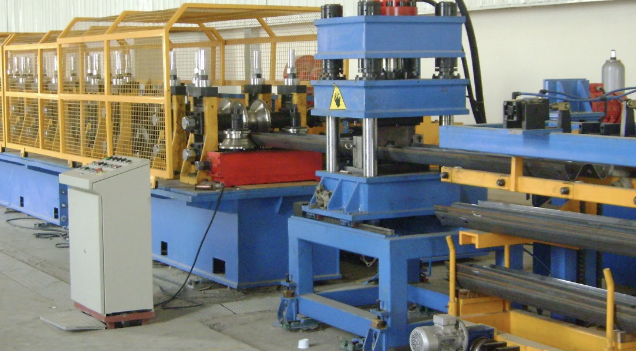Mozambique, with its growing economy and increasing demand for infrastructure development, is witnessing significant advancements in the roll forming industry.
1. Technology Adoption in Roll Forming Machines
The roll forming industry in Mozambique is leveraging advancements in technology to improve production efficiency and meet diverse market demands. Key technological trends include:
a. Automation and Smart Roll Forming
- Increased adoption of automated systems and PLC-controlled machines for precision and reduced downtime.
- Integration of IoT (Internet of Things) for real-time monitoring and predictive maintenance.
- Use of servo motors and hydraulic cutting systems for high-speed production.
b. Energy-Efficient Machines
- Roll forming machines are being designed to operate efficiently with Mozambique’s power supply standards, including solutions for regions with unreliable electricity.
- Solar-powered and energy-efficient machines are gaining traction, aligning with sustainable development goals.
c. Customization and Modular Designs
- Machines that can produce multiple profiles are becoming popular to cater to diverse construction needs.
- Modular machine designs allow easy upgrades, reducing initial capital expenditure for small and medium enterprises.
2. Shifting Market Demands
a. Infrastructure Development
- The government’s focus on improving infrastructure, such as roads, bridges, and housing, has increased the demand for profiles like roofing sheets, highway guardrails, and steel frames.
- Growth in commercial and residential construction is driving demand for roofing panels, decking profiles, and insulated panels.
b. Agricultural Sector Expansion
- With Mozambique’s reliance on agriculture, there’s a growing demand for greenhouse profiles and silo structures produced by roll forming machines.
c. Export Opportunities
- Proximity to neighboring countries like South Africa, Zimbabwe, and Tanzania opens opportunities for exporting roll-formed profiles.
3. Challenges and Opportunities
a. Local Manufacturing vs. Imports
- Mozambique imports a significant portion of roll forming machines and profiles. Establishing local manufacturing facilities can reduce costs and lead times.
- Incentives for local businesses to invest in roll forming technology could enhance domestic production.
b. Training and Skill Development
- There’s a need for training programs to equip workers with skills to operate advanced roll forming machines.
c. Sustainable Practices
- The industry is moving toward using recycled materials and adopting sustainable manufacturing processes to align with global environmental standards.
4. Future Prospects
a. Digital Transformation
- The integration of AI for quality control and cloud-based solutions for machine monitoring is on the rise.
- Software advancements are enabling precise design and production of complex profiles.
b. Focus on Lightweight Materials
- The demand for lightweight yet durable materials, such as aluminum and high-strength steel, is growing for both domestic and industrial applications.
c. Government Policies and Investments
- Supportive government policies and foreign investments in infrastructure projects are creating a conducive environment for the roll forming industry.
Conclusion
Mozambique’s roll forming industry is at a pivotal point, with technology and infrastructure development driving significant growth. Companies that adopt cutting-edge technologies and align with market demands will capitalize on emerging opportunities in this dynamic market.
By staying ahead of these trends, businesses can not only serve Mozambique’s growing construction and industrial needs but also position themselves as leaders in the regional market.




